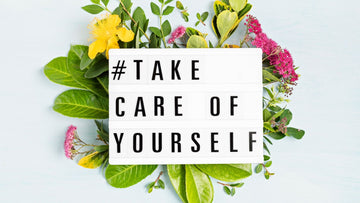The term “self-care” originally appeared in the 1950s and circulated amongst civil right groups for several decades. Then, in 2016, the term exploded into the limelight due to the tumultuous presidential election – according to the New York Times.
Self-care is self-explanatory, but with the Americas’ obsession with overworking in pursuit of personal dreams or “keeping up with the Jones’” can make taking time for oneself an uncomfortable practice.
 Mental health service, BetterHelp, says self-care is often thought of as basic hygiene practices such as brushing your teeth, showering, and sleeping enough. However, the true practice of self-care is covering those essential practices and taking care of yourself in all aspects, including mental health.
Mental health service, BetterHelp, says self-care is often thought of as basic hygiene practices such as brushing your teeth, showering, and sleeping enough. However, the true practice of self-care is covering those essential practices and taking care of yourself in all aspects, including mental health.
Phycology Today author Shainna Ali Ph.D. outlines a dismal reality without self-care, and encourages readers to take steps to live their best lives possible.
“Neglecting personal care can cause increases in anxiety, distractibility, anger, and fatigue. You may also experience decreases in sleep, relationship satisfaction, self-esteem, empathy, and compassion…consider self-care as an important action to honor your wellness,” Ali said.
Self-care is an ongoing practice that should become easier with time. According to HealthLine, humans can take anywhere from 18-250+ days to create a new habit. 66 days is a common phycological benchmark in habit formation that people can look forward too, though.
Here are ways you can improve your self-care, in no particular order.
Improve your work-life balance
As many people have discovered throughout the COVID-19 pandemic, working yourself to the bone in pursuit of a better-sounding job title or a couple extra thousand bucks in your bank account at the end of the year isn’t worth the stress of appeasing everyone you come into contact with.
According to Forbes, “workaholism is not a virtue.” Symptoms of overworking are decreased productivity, disorganization, and emotional drain. Taking advantage of breaks throughout the day and enjoying your entire lunch break with friends, taking walks and making personal phone calls is an excellent first step in warding off office burnout. From there, you can draw professional boundaries (i.e. no business calls or emails outside work hours). These practices can set you up for success in your workplace and leave work precisely where it belongs – in the office.
Exercise regularly
Moving your body every single day is vital to creating a deeper relationship with the vessel that allows you to be YOU. Moving regularly can build muscle-to-mind connection and alert you to when something is off with your health. What is all comes down to is listening to your body and doing movements that feel good.
According to BetterHelp, moving for 20-30 minutes a day and incorporating resistance-based movements (pushups, Pilates, strength training) is best for increased heart – and brain – health.
Eat for health
Your body is built entirely from the things it is fed. Every leaf of salad and McDonald’s French fry is broken down and put to work creating the best body possible. BetterHelp lays it out plainly, reminding us that we require certain nutrients to thrive.
“The body requires certain nutrients and substances to be able to function properly, so when you nourish your body with whole, nutritious foods, you’re more likely to be happier, clearer-headed, and physically capable. For example, the body requires vitamins, minerals, proteins, and fats to produce the hormones that control whether or not you feel happy or sad; if you don’t have enough of these nutrients, you may start to feel depressed,” the mental-health service details.
Consult with your physician or seek a licensed nutritionist if you have serious questions or concerns regarding your diet. Otherwise, follow widely distributed dietary guidelines.
Manage your stress
If you’ve read this far and taken the previously mentioned steps to heart, you’re on a great path the reducing stress in your life.
To take things a step further, analyze areas in your life that may be creating obvious or sneaky stress. An emotional partner, tenuous finances, or a demanding boss can all be triggers for stress.
According to Mark Stibich, PhD. on Verywellmind.com, stress leads to increased cortisol levels, which is a fight-or-flight hormone that can wear on your immune system and heart when produced in excess. Higher levels of cortisol have been linked to decreased life expectancy and a poorer quality of life.
Managing stress is easier said than done, but weeding out triggers in your life by choosing a profession that complements your characteristics, having open conversations with people in your life who cause you stress, and diligently committing to reducing the stress around you will reap big rewards.
Self-care is a lifelong practice well worth the effort. With the conscious movement towards treating yourself with more kindness, you can experience a deeper level of peace in your own skin and better love those around you.






















